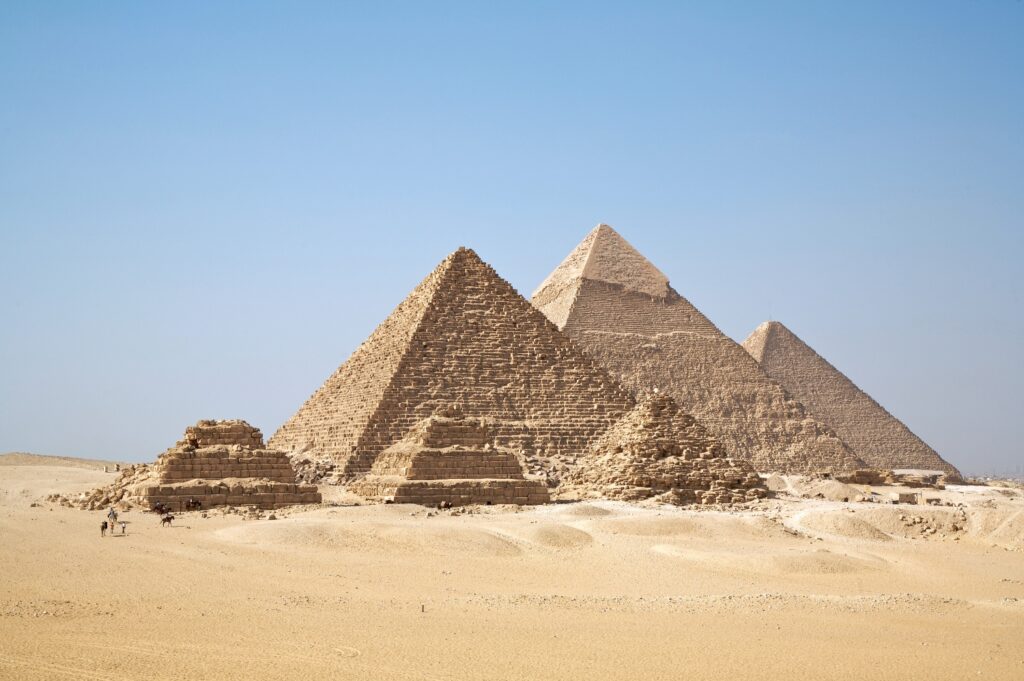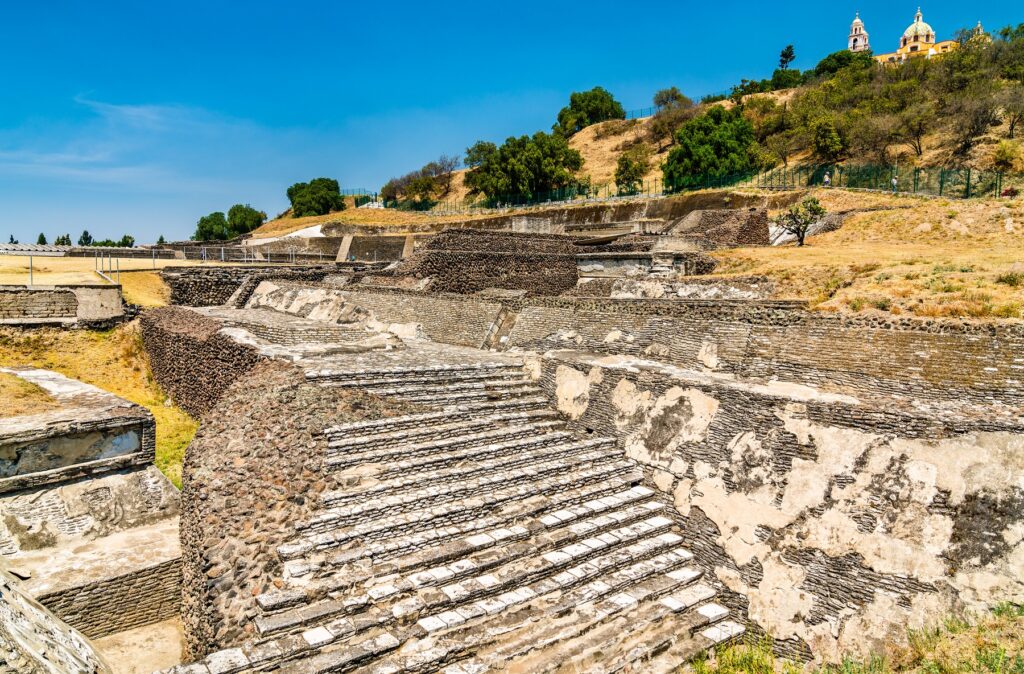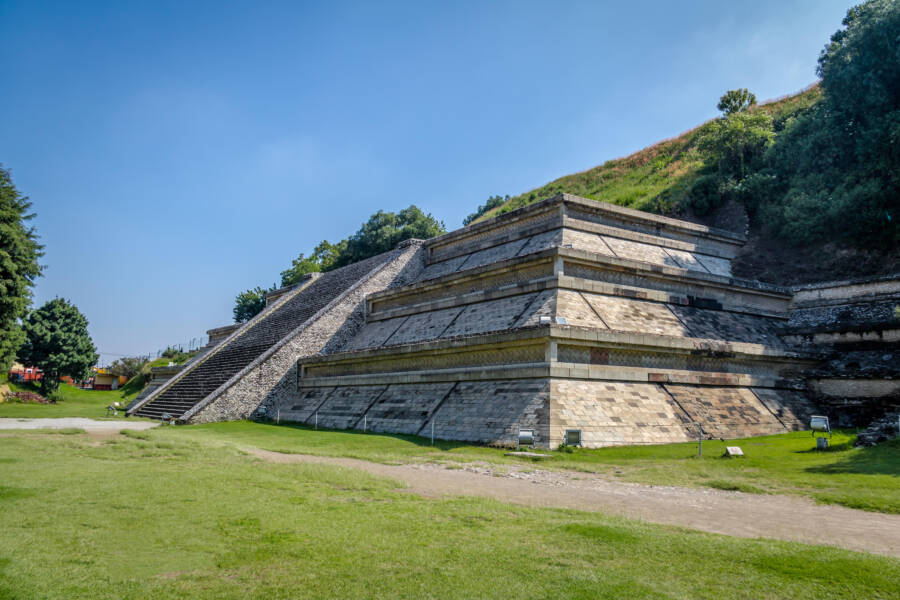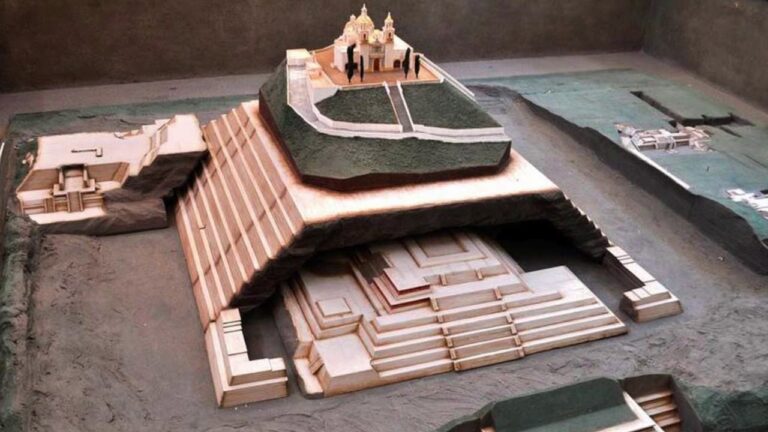Share this
In the heartland of Mexico, nestled within the vibrant city of Cholula, lies a marvel that defies the imagination and stands as a testament to ancient engineering prowess: the Great Pyramid of Cholula. Rising majestically from the lush landscape, this architectural wonder holds the title of the world’s largest pyramid, dwarfing even the more famous Great Pyramid of Giza in volume.

Unraveling History’s Layers
The story of the Great Pyramid of Cholula is as rich and layered as the structure itself. Built over several centuries by the ancient inhabitants of Mesoamerica, particularly the Aztecs and the Toltecs, its construction began around the 3rd century BCE and continued well into the 9th century CE. However, its true origins date back even further, with evidence suggesting that the site was occupied as early as the 3rd century BCE.
A Monumental Structure
Unlike the Egyptian pyramids, which are characterized by their towering height, the Great Pyramid of Cholula is distinguished by its sheer mass and sprawling dimensions. From afar, it resembles a natural hill, overgrown with lush vegetation, giving it an air of mystique and blending seamlessly with the surrounding landscape.
At its base, the pyramid covers an astonishing 154,774 square meters (1,668,233 square feet), making it the largest pyramid in terms of volume. Its height, though not as towering as its Egyptian counterparts, still impresses, standing at approximately 66 meters (217 feet) tall.

A Sacred Center
Central to the significance of the Great Pyramid of Cholula is its role as a religious and ceremonial center for the ancient Mesoamerican civilizations. Dedicated to the deity Quetzalcoatl, the Feathered Serpent god, the pyramid served as a focal point for religious rituals, pilgrimages, and sacrifices.
The complex surrounding the pyramid was once adorned with ornate sculptures, temples, and altars, attesting to the spiritual importance of the site. It was a place where the earthly and divine realms converged, where the celestial and terrestrial were believed to meet.
Rediscovery and Preservation
Over the centuries, the Great Pyramid of Cholula was gradually reclaimed by nature, its grandeur obscured by layers of soil and vegetation. It wasn’t until the arrival of Spanish conquistadors in the 16th century that its existence was brought to light.
Conquistadors under the command of Hernán Cortés stumbled upon the pyramid during their conquest of Mesoamerica, mistaking it for a natural hill. However, as they ventured closer, they discovered the intricate stonework and realized they had encountered something extraordinary.
Today, the Great Pyramid of Cholula stands as a UNESCO World Heritage Site, a testament to the ingenuity and craftsmanship of ancient civilizations. Efforts to preserve and protect this cultural treasure are ongoing, ensuring that future generations can marvel at its splendor.

Unlocking Mysteries
Despite centuries of study, much about the Great Pyramid of Cholula remains shrouded in mystery. Archaeologists continue to unearth new discoveries, shedding light on the complex history of the site and its significance to the people who built it.
Questions abound regarding the precise methods used in its construction, the reasons behind its massive size, and the rituals performed within its sacred precincts. Each new excavation brings us closer to unraveling these mysteries and gaining a deeper understanding of the ancient cultures that thrived in Mesoamerica.
A Timeless Legacy
As we gaze upon the Great Pyramid of Cholula, we are reminded of the enduring legacy of humanity’s ancient civilizations. It stands as a testament to the power of human creativity, ingenuity, and spirituality, transcending the boundaries of time and culture.
In its weathered stones and moss-covered walls, we find echoes of a distant past, a time when civilizations rose and fell, leaving behind monuments that continue to inspire awe and wonder. The Great Pyramid of Cholula invites us to contemplate the mysteries of the past and to marvel at the achievements of those who came before us.




0 Comments